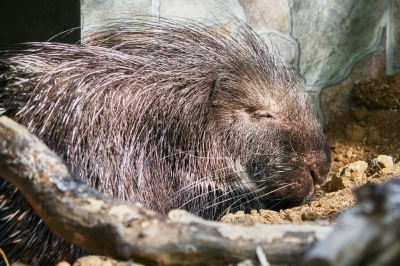Though mammals are made up of less than 0.85% sulfur, as they decompose the chemical reaction produces a scent that’s hard to describe, but easy to recognize.
As bacteria work to break down an animal carcass, a flood of bacteria get to work producing over 400 compounds like hydrogen sulfide, methanethiol, and benzene derivatives, all of which make up the uniquely unpleasant scent of death.
Once an animal begins to rot it’s also more likely to harbor disease and disease-carrying scavengers that can make us sick. That’s why some scientists believe our strong aversion to decomposition is biological.
Whatever the reason, the fact remains that if an animal dies in the walls of your home or business, it can produce a near intolerable stench that’s impossible to ignore. Within a short time it can begin to affect your family’s well being or negatively impact your ability to serve customers.
Here’s what you can do if you suspect an animal has died in your home.
Locate the Source of the Smell
The first step is to try and locate where in your home the animal has died. Use your nose to determine which area of the house smells the strongest. If you’re lucky the carcass will simply need to be removed from an open space like the attic or garage. However, more often than not, pests may fall between the walls, get trapped and begin to rot there.
In a case of smelly yet unseen, you may have to literally drag your nose across the wall void to unearth the exact location of the deceased animal.
You may see an influx of flies or maggots congregating around a particular spot. This is a good indication you have a cadaver lodged in your walls. While smaller vermin like rats merely leave a stench, larger animals like opossum or raccoons, have been known to leave damp spots or stains at the site.
If you have trouble finding or dislodging the carcass from your walls, a professional wildlife removal technician can help. They typically cut a hole in the wall, spray a neutralizing or masking agent and re-plaster the area once treated. They can also help you treat insect infestations like beetles and flies that feed on the dead animal.
How Long Will a Dead Animal Smell?
As long as the animal is decomposing it will emit a strong smell. Once completely decayed or dried out the smell should subside. However, if the animal dies in or around damp conditions, this process will take longer.
In the case of very small animals like a baby mouse, the scent may only last a day or two. However, larger animals like squirrels take a week or more and weighty critters like skunks decompose over the course of at least a month!
How Can You Eliminate the Odor of a Dead Animal?
To eliminate odors, you must first remove the dead wildlife. Next, treat the area with a disinfectant, odor neutralizer, or masking agent and ventilate the site with a fan (preferably one that forces stagnant air out the windows).
If you can’t remove the animal yourself, call a professional and treat the odor in one of these three ways:
- Remove stinky particles from the air with an air cleaner that includes an absorbent filter activated with charcoal or silica gel.
- Use an odor neutralizer- usually in the form of powders, granules, sprays, or rods- that contains bacteria, enzymes or ionic minerals to break down smelly compounds.
- Temporarily mask or cover up the smell with an aerosol masking deodorant or mist spray concentrated fragrance.
Ultimately, the best solution is prevention. By pest-proofing your home or business, you can prevent unwanted animals from seeking shelter in your walls. This includes using chimney caps to prevent unwanted pest from taking up residence, and setting out traps to capture and remove creatures instead of poison bait, which can cause an animal to stagger off and die inaccessibly.
From bat removal to rodent control, if you’re looking for professional animal removal in Dallas, contact us to rid your home of decaying critters.







